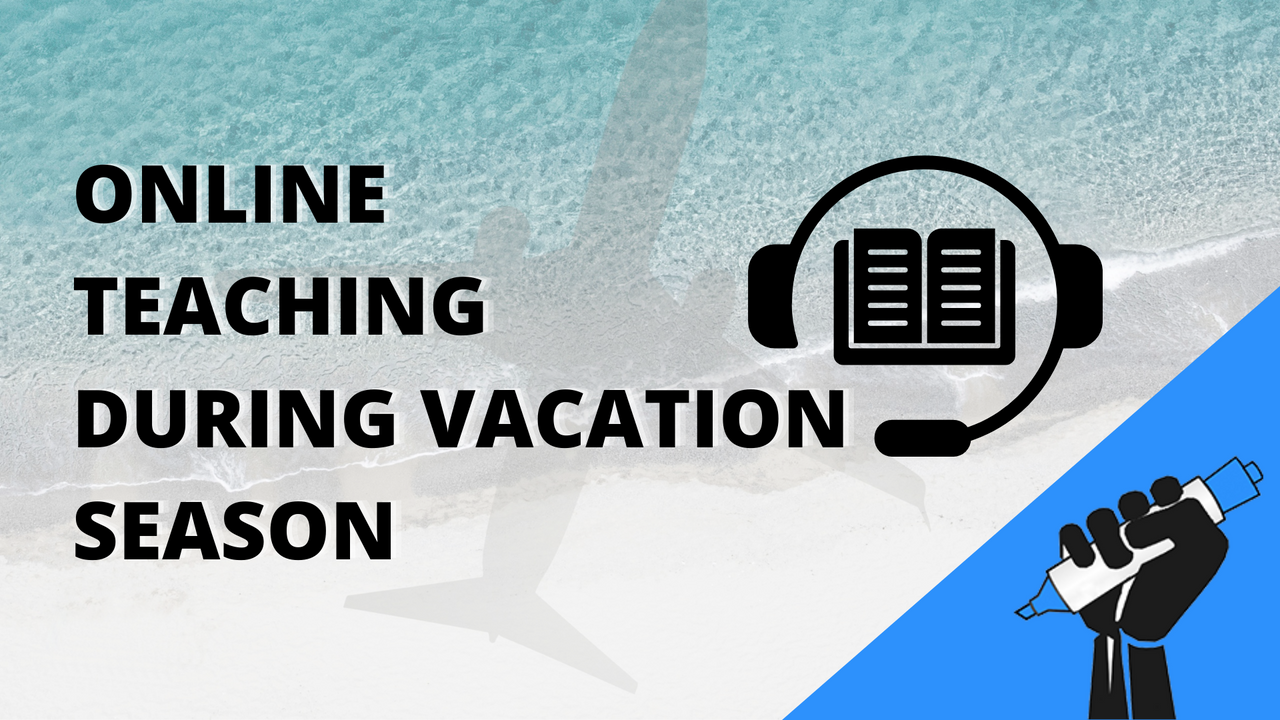Online teaching during vacation season

Though vacation is a time to unwind and recharge your batteries, some use this time to upskill and explore new avenues. However, it doesn’t have to be all work and no play. Today with E-learning and E teaching students and teachers have the flexibility to relax and enjoy without compromising their professional or academic aspirations. You can teach or learn not only from home but from any place with internet access.
Vacation and Online teaching
As an online teacher, you can have the best of both worlds, you can travel, experience different cultures, and still get paid. Here are some suggestions that can help you enjoy your vacation and get the most out of your online teaching:
· Pre-plan:
Forethought is the key to making flexible work patterns successful. Planning schedules, fitting in personal and travel commitments, and booking or canceling lessons accordingly will help reduce stress.
· Hardware and Internet technologies:
If you are an online teacher living out of a suitcase, it is important to ensure you have dependable teaching equipment, a reliable internet connection, and a backup plan if things go wrong.

· Establish a schedule:
Dream holidays are achievable with good planning and time management. Take time differences into consideration if your students and you will be in different time zones and chalk out your work hours and your leisure activities accordingly.
Just like you have decided not to stop teaching during vacation, many students won’t stop learning, however, your role as a virtual educator will be important in keeping these learners motivated. Let’s talk about how you can promote learning during vacation.
Class Culture
Although online classes are convenient, they can be challenging. Students can get distracted easily and may feel disconnected or uncomfortable. The onus is on you to create an engaging, and inclusive class environment where students learn to stay focused and become self-directed learners.
· Share Holiday Traditions:
Discussions about holidays or celebrations are a great way to make students feel comfortable. It is an opportunity for students and teachers to learn about different cultures, traditions, family backgrounds and appreciate diversity.
· Icebreakers, group discussions, or team challenges:
Traditional classes thrive on social interactions, establishing similar connections with students in a virtual space is not easy Icebreakers, group discussions or problem-solving activities are a great way to facilitate social bonding in a virtual class. These collaborative activities make classes fun and keep students engaged.

· Establish classroom routines and norms:
Routines help ensure students and teachers work in conjunction. Learning sessions become more productive when there is order in class and everyone is aware of expectations and outcomes.
· Promote kindness:
Social learning experiences are restricted in virtual classes. Students who thrive in a peer-learning environment may feel disengaged, lonely or anxious. Facilitating equal opportunities for participation and rewarding each contribution however small can help build trust, forge relationships and improve student engagement.
Self-disciplined, motivated, and determined students on one hand and self-directed, organized teachers on the other are a recipe for successful online learning experiences.
How did you spend your vacation?
Written by Preeti Lamba

